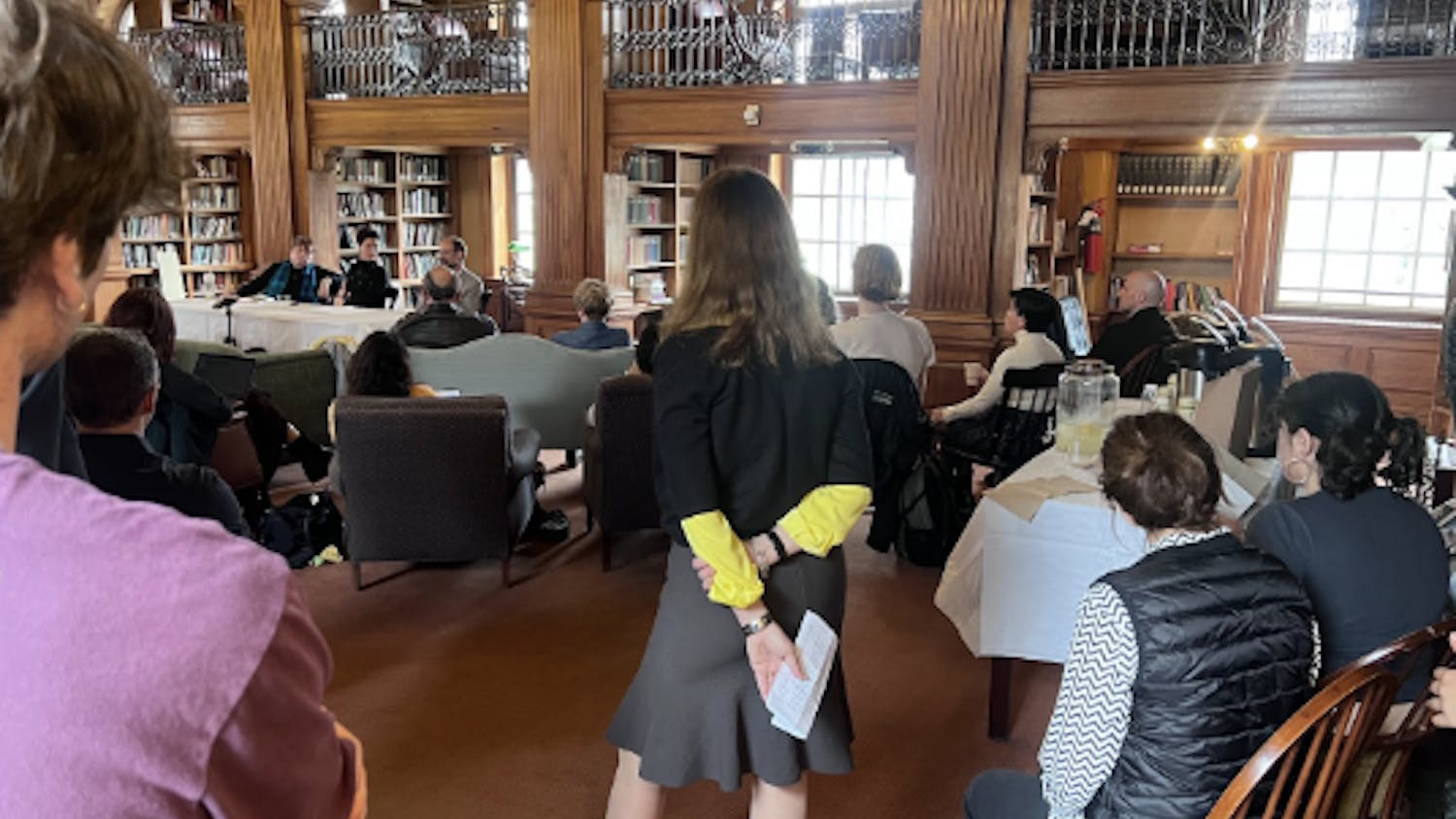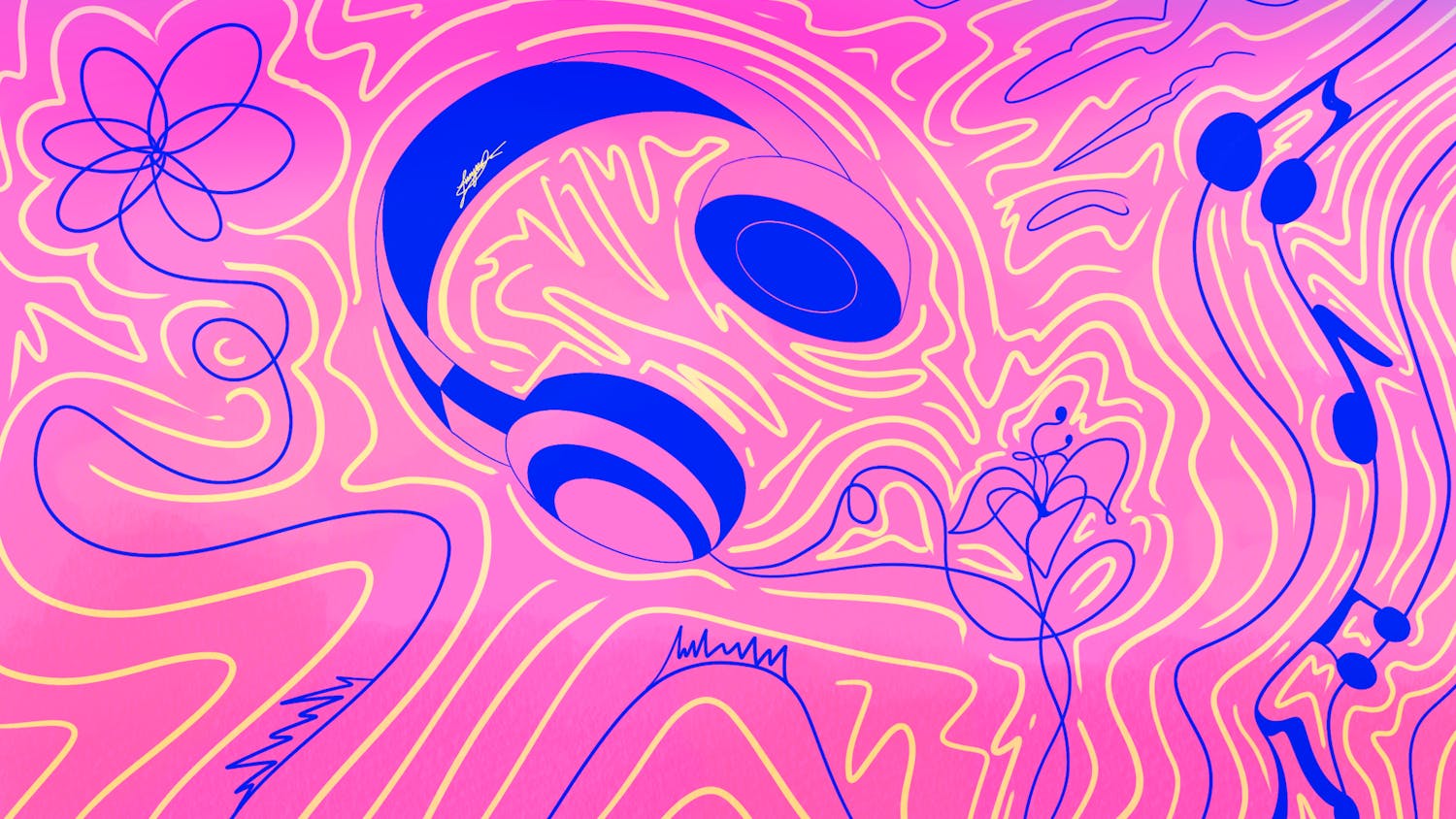The theater department will present senior Kimberly Marable's culminating experience, "THUGLIFEpoetics," written by Marable and directed by Ashley Satterfield '07 on Wednesday evening. The show begins at 8 p.m. in the Bentley Theater and admission is free.
"THUGLIFEpoetics" explores the stereotypes we associate with urban culture. The composite of characters is fascinating and, most of the time, humorous. The main characters consist of the famous rapper Tupac Shakur, his girlfriend Keisha and her teenage son Rayshawn, an aspiring rapper. They are supported by a raucous ensemble cast, including constantly complaining elderly community members, civil-rights demonstrators, two white girls by the names of Vanilla and Snowflake and even a Chinese restaurant worker who knows West-Side Kung Fu and breaks out his moves on the stage.
But there is more to "THUGLIFEpoetics" than an intriguing assortment of characters. The play evocatively challenges stereotypes we associate with race and urban culture.
Marable sat down with The Dartmouth to further discuss the show.
The Dartmouth: What inspired you to write this?
Kimberly Marable: Given the content of his more conscientious music, Tupac has always been interesting to me. The "mystery" of his death and the documentary that was released increased my level of respect and admiration for the man and spurred my curiosity to explore the cultural circumstances that made him who he was.
The D: Give us a background of the play.
KM: "THUGLIFEpoetics" began as a playwriting exercise at the National Theater Institute where we analyzed the engines (environment, action, language, characters) of Charles Mee's "BobRauschenbergAmerica," and wrote our own six-to-eight-page scene employing ultra-realism, unapologetic stereotypes, spectacle and the existence of a non-linear, collage-like format as its foundation.
We were instructed to choose the historical main character we had utilized in an earlier exercise to provide a contextual theme to address. I chose Tupac. Like Tupac, I wanted to explore the constructs of ghetto and hip-hop culture through my art. Thus, I took the opportunity to expand the piece as my final project and the piece became a 39-page one-act.
The D: How long did it take to write?
KM: Although I wrote it while at the National Theater Institute over approximately a three-week period, it's undergone almost a term's worth of revisions, especially after hearing the script read by the actors during rehearsals.
The D: Why do you think people should go to see it?
KM: Aside from its entertainment value (which is comedic for the most part), I think this is a type of play that Dartmouth has not seen before and will hopefully lend itself to creating an enjoyable night of theater.
The D: What role do stereotypes play in this show? Why are they important?
KM: The play is an unapologetic, bold representation of the stereotypes surrounding ghetto and hip-hop culture, which hopefully people will recognize and think about. Somewhat like Spike Lee's "Do the Right Thing," the characters in this piece represent reality times one-and-a-half -- the characteristics we most often recognize in them are pinpointed and brought to an extreme.
The D: Will the audience have a chance to ask questions about the play?
KM: Given that this is a Staged Reading of a "Work in Progress," there will be a talk-back where the audience will be allowed to give feedback and their reactions to the play.
The D: What do you hope people will take away from the show?
KM: I think this is an important piece that will challenge the Dartmouth community to examine their views on racial and cultural stereotypes; to question themselves when they laugh at a certain joke, emulate hip-hop celebrities as "true representatives" of hip hop culture, or say something as trite as "that's so ghetto."



